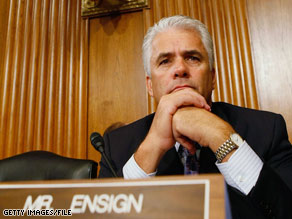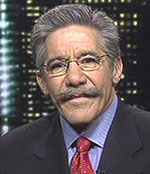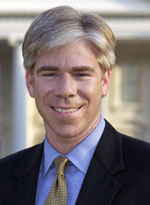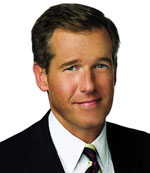 Last Wednesday I heard Annie Jacobsen talk about her book, “Area 51: An Uncensored History of America’s Top Secret Military Base,” with Jon Stewart on the Daily Show. Then, the next morning, I heard her on Morning Jo’. I was intrigued. I downloaded a 30-page sample onto my Nook, was hooked, and then bought and downloaded the entire book. Four days later, and just six days after the book was released, I’m finished.
Last Wednesday I heard Annie Jacobsen talk about her book, “Area 51: An Uncensored History of America’s Top Secret Military Base,” with Jon Stewart on the Daily Show. Then, the next morning, I heard her on Morning Jo’. I was intrigued. I downloaded a 30-page sample onto my Nook, was hooked, and then bought and downloaded the entire book. Four days later, and just six days after the book was released, I’m finished.
Yes, it was a good book.
Jacobsen is an investigative reporter who outdid herself on this book, learning all kinds of stuff she probably wasn’t supposed to learn. She tracked down persons involved with secret Area 51 projects from decades ago, and plowed through masses of formerly classified documents, assembling the pieces of a fascinating story.
Area 51, of course, is a part of Nevada which the government still denies exists. It’s part of a larger section of Nevada which includes other “areas” which have been home to nuclear testing, space research, and many other super-secret government projects since the 1940s.

Annie Jacobsen
Jacobsen starts the book in 1947 in Roswell, New Mexico. Two flying discs crashed there in 1947. She unravels the story. They weren’t from outer space, but came from Russia, using technology developed by German scientists during the war. The book ends with the same story, but now including details of the comatose humans aboard those craft–grossly deformed teenagers with large heads and eyes, surgically modified by German doctors at Stalin’s request. It’s a gruesome tale, and gets even more gruesome. I won’t go further into that.
In between, Jacobsen tells about the U-2 and SR-71 (called the Oxcart originally) spyplane projects; about numerous nuclear tests–hundreds of them–conducted both in Nevada and the Pacific; about the development of drones going back to the 1950s; about deception after deception regarding numerous projects, including the CIA’s secret investigations into UFOs; and about the continual infighting between the CIA and the Air Force for control of Area 51 projects. Area 51 was initiated by the CIA, but the Air Force has taken it over.
There are some great stories about test flights, and about the early missions of the U-2. The very first mission resulted in a treasure trove of information about Russian military preparedness. Also, throughout that mission, the Russians sent up fighters to intercept the high-flying U-2, but none could get close enough to take a shot. The Gary Powers shoot-down is told at length; but many other U-2s were also shot down (two Taiwanese U-2 pilots, shot-down over China, were imprisoned for up to 19 years before being released in 1982).
Jacobsen was tenacious in questioning people with secret information. In the end, she leaves us with a lot of questions. There is missing information which eluded her intrepid reporting. But the story she tells, mostly told in the context of the Cold War, illuminates decades of secret US history. Truly a fascinating read.
This, by the way, is a good companion to SkunkWorks, the 1996 book by Ben Rich which told about the development of the U2 and SR-71 planes. I read that book when it came out, too. But it was more of a memoir, not an investigative book intent on uncovering secrets.



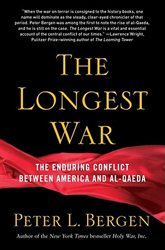 I loved this book. I’ve read a number of books about the Afghanistan and Iraq wars, and most have been very good. “The Longest War: The Enduring Conflict Between America and Al-Qaeda,” published in January 2011, represents extensive reporting of the whole history of Al Qaeda and Osama bin Laden. Bergen, a TV and print journalist, was the CNN producer who arranged bin Laden’s first interview with the Western press back 1997. He’s been working the story ever since.
I loved this book. I’ve read a number of books about the Afghanistan and Iraq wars, and most have been very good. “The Longest War: The Enduring Conflict Between America and Al-Qaeda,” published in January 2011, represents extensive reporting of the whole history of Al Qaeda and Osama bin Laden. Bergen, a TV and print journalist, was the CNN producer who arranged bin Laden’s first interview with the Western press back 1997. He’s been working the story ever since.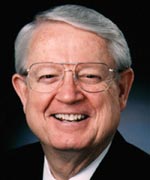 I occasionally feel bothered by our efforts, as the Christian church, to adopt the world’s ways in order to appeal to the world. There are lots of advantages to doing that, and yet, I don’t know, it sometimes just doesn’t feel right. Maybe I’m just getting old and allergic to edgy.
I occasionally feel bothered by our efforts, as the Christian church, to adopt the world’s ways in order to appeal to the world. There are lots of advantages to doing that, and yet, I don’t know, it sometimes just doesn’t feel right. Maybe I’m just getting old and allergic to edgy.